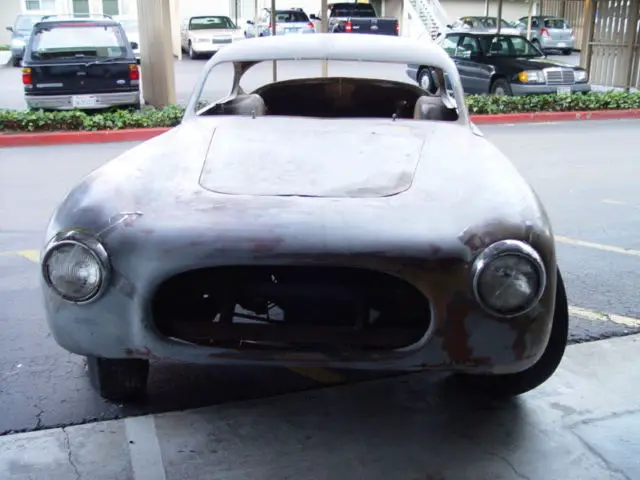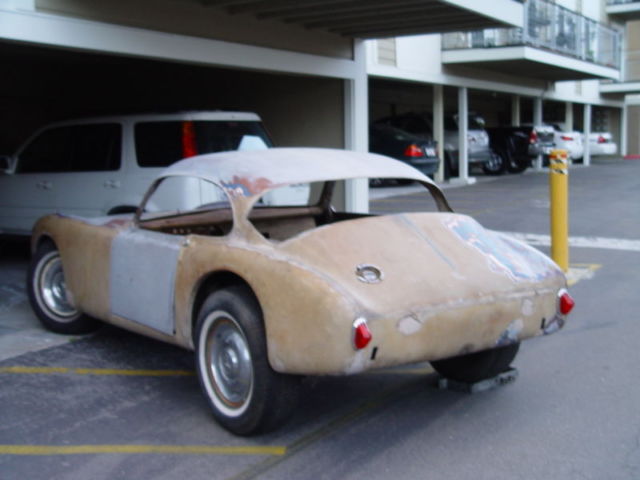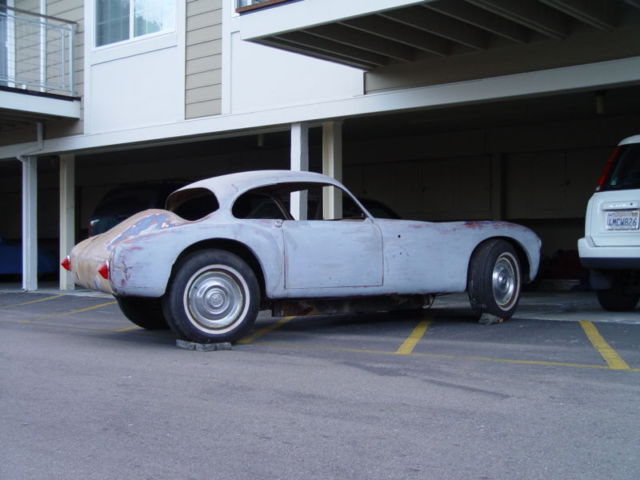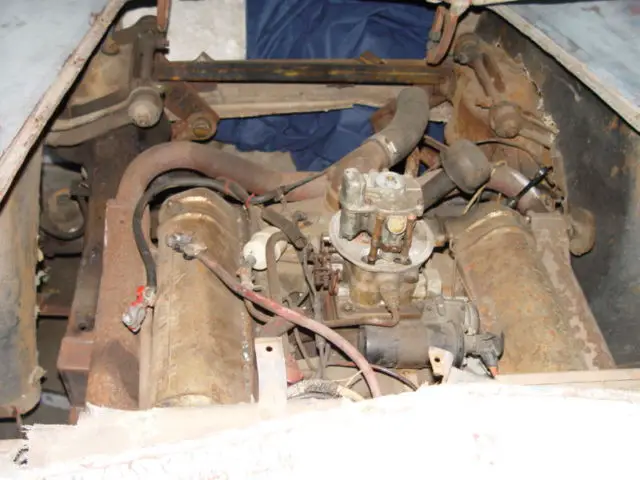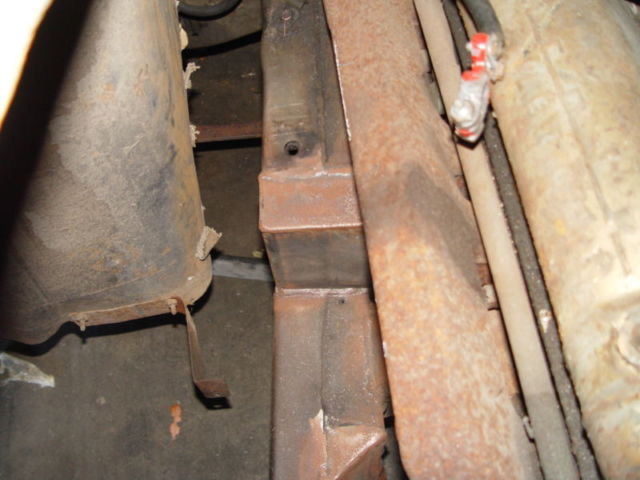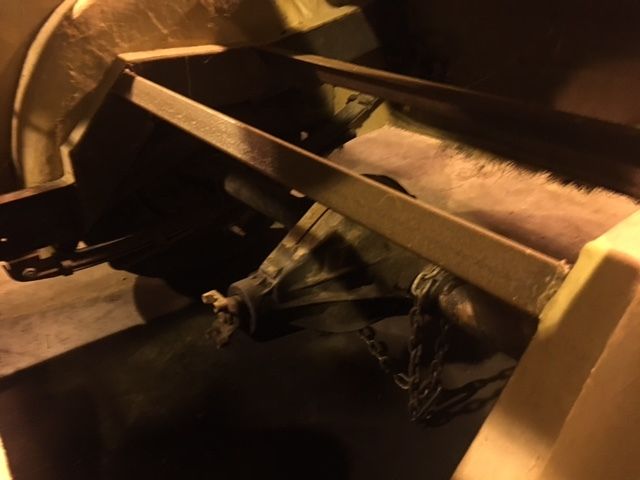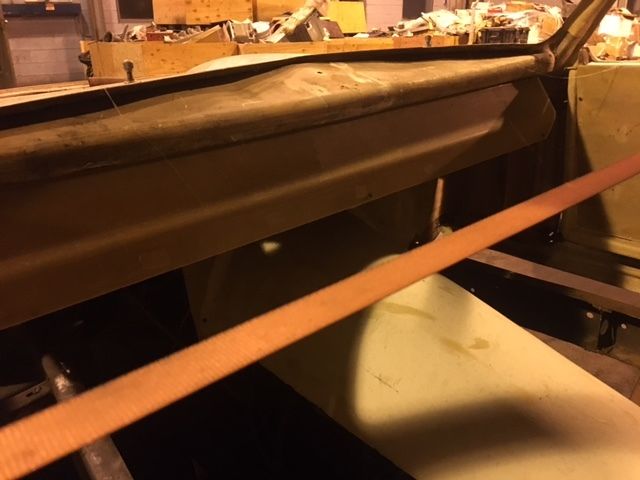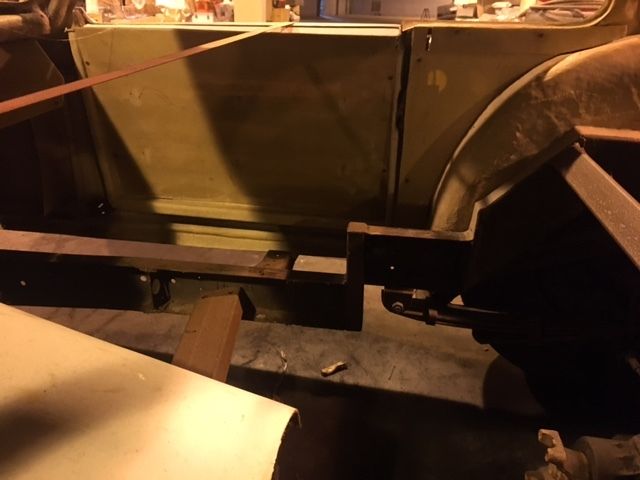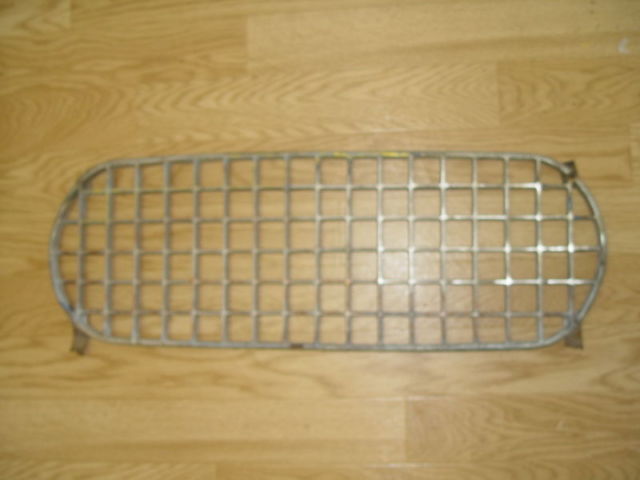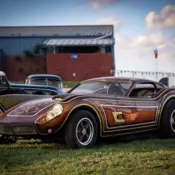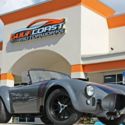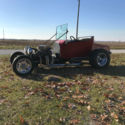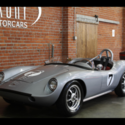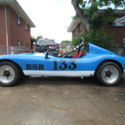1954 Atlas Allied Falcon Other Makes American Special Devin Kellison Rare
| Make: | Other Makes |
| Model: | G80 |
| Type: | Coupe |
| Year: | 1954 |
| Color: | other |
| Cylinders: | 8 |
| Fuel: | Gasoline |
| Transmission: | Automatic |
| Interior color: | other |
| Vehicle Title: | Clear |
| Item location: | Sylmar, California, United States |
1954 Other Makes G80 Additional Info:
1954 Atlas Allied/ Lincoln
This car was purchased oneBay in May 2011. It is now for sale and we are listing it the same way as it was when purchased. Our customer as nolonger interest in restoring it so it needs to go to the right person that will enjoy such a rare car.
There have been some repairs done on the fiberglass and we have done the dash board, other than that it is the same.
The Atlas Allied was one of the first fiberglass bodies. The design was based on the Cisitalia 202. Early American Hot-Rodder Mickey Thompson, and the father of the Bonneville Belly Tank Bill Burke, along with Roy Kinch were responsible for it's creation. The Atlas Allied came in two sizes: The Swallow and The Falcon. The Falcon was designed to accommodate large American chassis and, of course V-8s. There is plenty of documentation available on these cars, and the Forgotten Fiberglass website has quite a bit information on the Atlas Allied.
This Particular car features a 1954 Carrera Pan American winning type Lincoln Capri Chassis and Drivetrain. The 1954 Lincoln Capri was purpose built to win the unlimited production class in the grueling 1900 mile road race. Everything about the car was different. This was Lincoln's first overhead valve engine. The chassis was specially designed to be sturdy, rigid, and stable over rough road conditions.The chassis features an independent ball joint front suspension-Just like today's modern sedans. The Lincoln Capri even came stock with a GM Dual Range Hydramatic transmission. Hard to imagine a Lincoln with a GM Transmission, however a GM transmission in the Lincoln Capri is just further evidence that everything about the desing was planned around this production car winning the Pan American Road Race.
This particular 1954 Lincoln Capri drivetrain and chassis had less then 50k when it was fitted to the body. The original Lincoln OHV engine is in excellent running condition and has been carefully mounted well back behind the front suspension and below the hood line.
The body has the original grill, original door hardware, and original glass for front and rear. The following is from an Atlas Allied Website:
"Los Angeles, 1952
Mickey Thompson, along with his hot-rodding buddy, Bill Burke, decided to borrow HOT ROD and MOTORTREND magazine publisher, Robert Peterson's, new Cistalia 202 coupe. Apparently unbeknownst to Peterson, they took a plaster mold from the Cisitalia coupe at the shop of customiser George Barris while the Cisitalia was awaiting a new paint job. In the Summer of 1952, the two then enlisted the help of experienced 'glass man Roy Kinch to help with the making of permanent molds and the lay-up of the production bodies. The name of the new venture was called the "Atlas Fiber-glas Company", but was soon changed to "Allied Fiberglass" after the the former name came into conflict with another fiberglass producer.
The first bodies produced were dimensionally exact to the Cisitalia and were thus installed on small car chassis's like MG and Triumph.
A while later, a larger body was produced that could fit over domestic chassis's with 56"-60 track and 98-102" wheelbase. A few of these larger bodies were mounted onto Kurtis 500KK kit car chassis. These aforementioned cars are the most sought after Allied bodied cars.
Bill Burke built an Allied coupe with a tube chassis and Ardun-Merc engine and held the sportscar class at Bonneville for many years.
It is rumored that Mickey Thompson built a Allied coupe to race in the 1955 La Carrera Panamericana road race in Mexico, but never ran it due to the race being cancelled.
The exact amount of bodies and completed cars that Allied produced is unknown, but many have guessed at around 50 total.
Allied supplied finished bodies to Mulitplex Mfg in Pennsylvania (a builder of railroad cars) who built three finished cars between 1952-54.
(Harold Pace, Bill Fester)
The source of the Allied/Atlas body: The Cisitalia 202 of 1948.
The Cisitalia was an aluminum coupe with a body built by Pininfarina over a round tube chassis powered by a modified Fiat 1100cc drivetrain. This car was a sensation when it was unveiled and influenced the shape of all sportscars following the war. One of these cars was chosen by the New York Museum of Modern Art for permanent display."
Additionally, this from the forgotten Fiberglass Website regarding the Atlas Allied: "...the average fiberglass bodied sports car took 2000 hours to complete - as discussed in articles in the 1950's. That's 50 weeks of 40 hour weeks".
See:.forgottenfiberglass
and
carparts/alliedatlas/index for more information on this car.
Bill of Sale Only. This car is sold as is, where is. Here is all the legal stuff: This vehicle is being sold as is, where is with no warranty, expressed written or implied. The seller shall not be responsible for the correct description, authenticity, genuineness, or defects herein, and makes no warranty in connection therewith. No allowance or set aside will be made on account of any incorrectness, imperfection, defect or damage. Any descriptions or representations are for identification purposes only and are not to be construed as a warranty of any type. It is the responsibility of the buyer to have thoroughly inspected the vehicle and to have satisfied himself or herself as to the condition and value and based upon that judgment solely. The seller shall and will make every reasonable effort to disclose any known defects associated with this vehicle at the buyer's request prior to the close of sale. Seller assumes no responsibility for any repairs regardless of any oral statements about the vehicle.
